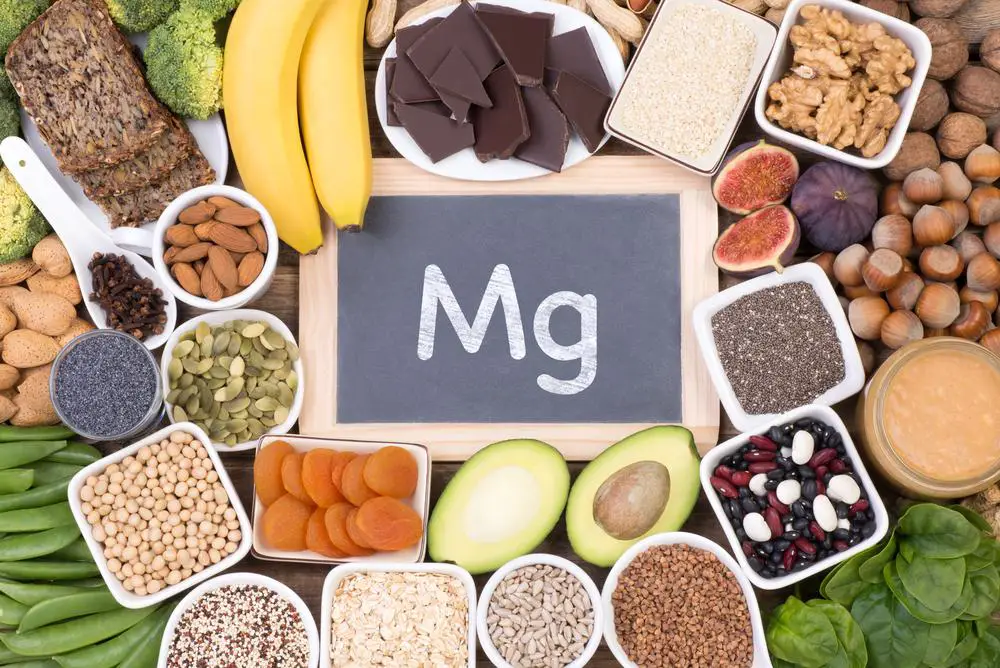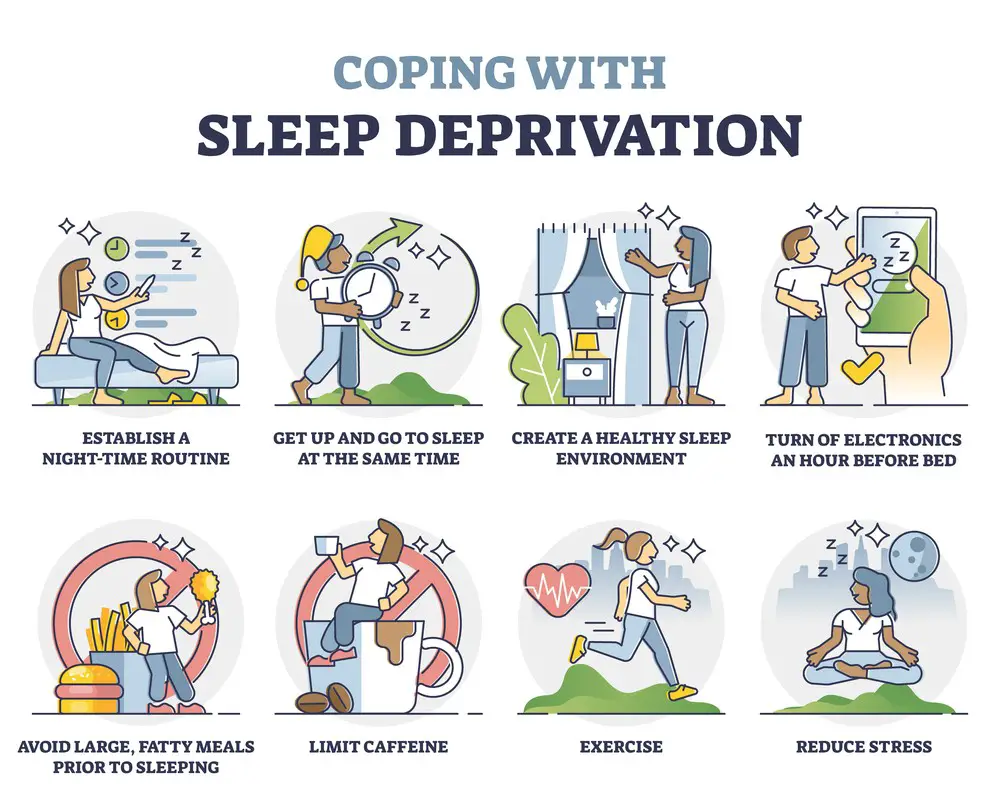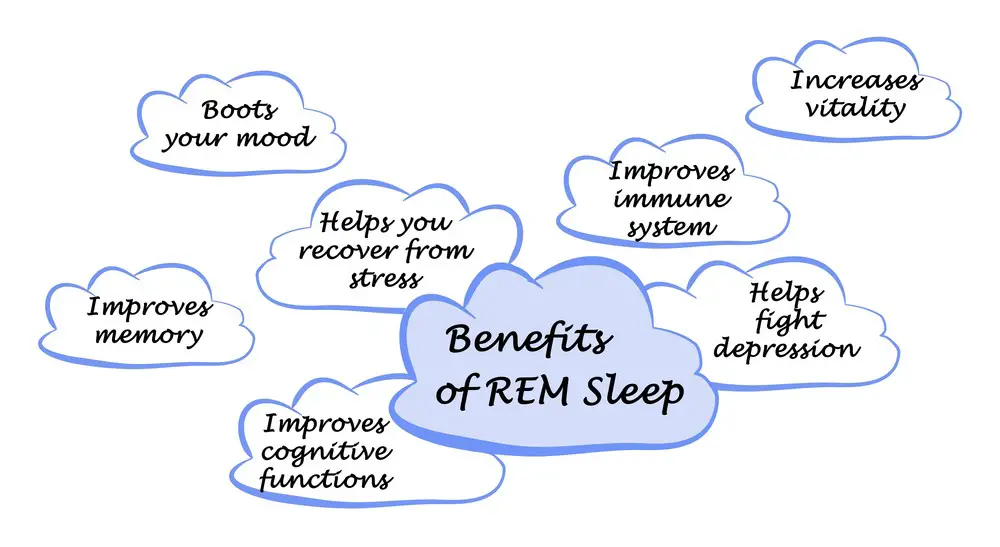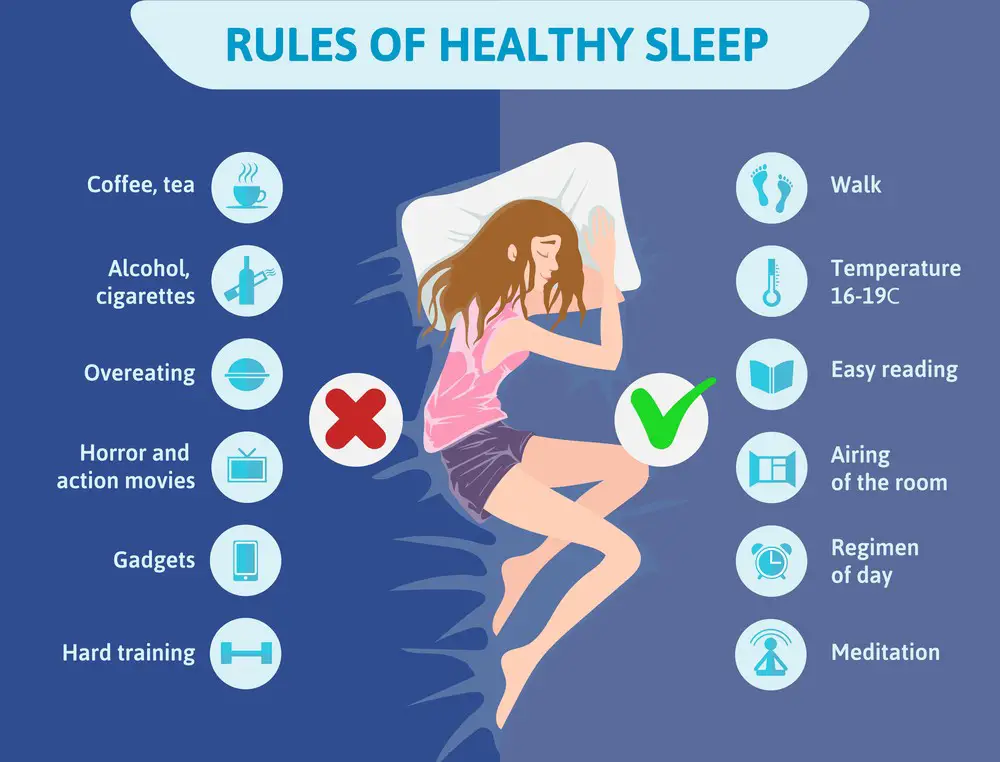As a BetterHelp affiliate, we receive compensation from BetterHelp if you purchase products or services through the links provided
As a parent, ensuring your child gets a good night’s sleep can have a significant impact on their overall health and well-being. One often overlooked aspect of a child’s sleep is the role of magnesium, an essential mineral that plays a vital part in various bodily processes. Magnesium is essential for kids, affecting their physical and mental development.
You may not be aware that magnesium is critical in supporting a healthy sleep cycle. It aids in the regulation of neurotransmitters, which send signals throughout the nervous system and help to control sleep patterns. If your child has trouble falling or staying asleep, it could indicate a magnesium deficiency.
Key Takeaways
- Magnesium plays a vital role in kids’ sleep and overall well-being
- A deficiency in magnesium can lead to disrupted sleep patterns in children
- Ensuring your child consumes an adequate amount of magnesium can have positive effects on their sleep and overall development

Understanding Magnesium
Magnesium is an essential mineral that plays a key role in keeping your body healthy. It’s one of the most essential nutrients, and it’s needed for over 300 different body functions! You can find magnesium in various foods, especially leafy green vegetables, whole grains, nuts, and seeds. Your body uses magnesium for many purposes, including keeping your nerves and muscles working correctly and even helping you sleep better at night!
Incorporating enough magnesium into your diet is crucial for maintaining a healthy lifestyle. When you don’t get enough of this unique mineral, it can lead to fatigue, muscle cramps, and even trouble sleeping. That’s why it’s so important to make sure you’re eating a balanced diet with a variety of foods rich in magnesium. Here are some tips to help you get started:
- Eat plenty of leafy greens: Spinach, kale, and Swiss chard are all excellent sources of magnesium. Add them to salads, smoothies, or even stir-fries for a nutritious boost!
- Snack on nuts and seeds: Almonds, pumpkin seeds, and cashews are not only delicious but also packed with magnesium. Make them your go-to snack when you need a crunchy, satisfying treat.
- Include whole grains in your meals: Grains like brown rice, quinoa, and whole-wheat pasta all contain magnesium. Swap out white rice or pasta for their whole-grain counterparts for an easy way to up your magnesium intake.
It’s worth noting that some people might need extra magnesium due to various factors, such as age or health conditions. In these cases, a doctor or healthcare professional may recommend taking a magnesium supplement. Before starting any new supplement, it’s always a good idea to talk to your healthcare provider to make sure it’s the right choice for you.
In a nutshell, magnesium is an all-around superstar mineral that keeps your body running smoothly. Don’t forget to include magnesium-rich foods in your daily meals – your muscles, nerves, and sleep will thank you!

Importance of Magnesium for Kids
As a parent, you want to make sure your children grow up strong and healthy. One essential nutrient that plays a big part in their growth and development is magnesium. It’s responsible for many essential functions in kids’ bodies, including:
- Supporting strong bones and teeth: Magnesium helps to form and maintain strong bones and teeth, ensuring your kids have a healthy foundation as they grow.
- Boosting energy production: Kids have a seemingly endless energy supply, and magnesium is vital in producing that energy. It helps convert the food they eat into energy their bodies can use.
- Aiding good behavior: Magnesium regulates your child’s mood and cognitive function. An adequate magnesium intake can help reduce stress, improve their attention span, and maintain a happier attitude.
Now, it’s essential to find suitable sources of magnesium for your kids. Some magnesium-rich foods that they can enjoy include:
- Leafy greens (such as spinach and kale)
- Nuts and seeds (like almonds and pumpkin seeds)
- Beans and lentils
- Whole grains (brown rice, quinoa, and whole wheat bread)
- Dairy products (yogurt and milk)
To get the most out of these foods, try to incorporate them into your child’s meals consistently so they can get the full range of benefits magnesium has to offer. You might also consider a magnesium supplement if recommended by your pediatrician, especially if your child has a restricted diet or particular health concerns.
Remember to always consult with your pediatrician before making significant changes to your child’s diet. By ensuring they get the magnesium they need, you will be setting your kids up for a healthier, happier future.
 How Magnesium Affects Sleep
How Magnesium Affects Sleep
Do you ever have trouble falling asleep at night? One possible solution can be found in a simple mineral: magnesium. This substance influences your sleep in several ways, helping you to relax and enjoy a restful night.
Firstly, magnesium is vital for producing melatonin, a hormone that controls your sleep-wake cycle, also known as your circadian rhythm. A well-regulated circadian rhythm is essential for getting quality sleep. So, when you have enough magnesium, it supports melatonin production, ensuring your sleep pattern is on track.
On top of that, magnesium helps your muscles relax, and when you’re feeling relaxed, it’s easier for you to drift off to sleep. It achieves this by binding to gamma-aminobutyric acid (GABA) receptors – neurotransmitters that promote relaxation.
Here are some ways magnesium can improve your sleep quality:
- Encourages melatonin production: As mentioned earlier, magnesium helps create melatonin, ensuring that your natural sleep cycle is working correctly.
- Relaxes muscles: Magnesium helps your muscles unwind, making it much easier for your body to slip into a restful state.
- Improves sleep quality: With a balanced sleep pattern and relaxed muscles, you can enjoy deeper, more restorative sleep.
Incorporating magnesium into your bedtime routine might be just the thing to help you achieve a more peaceful and rejuvenating night’s sleep. Give it a try and see how it can work wonders for you!
 Recognizing Magnesium Deficiency in Kids
Recognizing Magnesium Deficiency in Kids
You might not realize it, but your child could be experiencing magnesium deficiency. It’s more common than you think and can directly affect their sleep. Let’s learn how to recognize the signs of low magnesium in kids so you can help them get a good night’s sleep.
Typically, kids with low magnesium levels may show various symptoms. One day, you may notice them feeling extra irritable and cranky without apparent reason. Pay attention to these changes in behavior, as it could very well be a sign of deficiency.
Restless leg syndrome is another potential indicator of magnesium scarcity. If your child expresses discomfort in their legs, especially at night, or you notice they’re constantly moving and shifting in bed, it might be worth checking their magnesium levels.
Here are some other common signs to keep an eye out for:
- Twitching muscles
- Trouble sleeping or staying asleep
- Leg cramps at night
- Fatigue during the day
So, how do you know when to act? It’s always a good idea to consult your child’s doctor if you suspect they have a deficiency. Seeking professional advice will ensure they receive the appropriate treatment and help set them on the path to better sleep.
 Benefits of Magnesium Supplements for Kids
Benefits of Magnesium Supplements for Kids
Introducing magnesium supplements into your child’s routine can offer numerous advantages for their overall well-being. These essential minerals can enhance their sleep quality, mood, and cognitive functions. Let’s explore some of these benefits in more detail:
Improved Sleep Quality: Magnesium helps relax your child’s muscles and calm their nervous system, making it easier for them to fall asleep and stay asleep throughout the night. A magnesium supplement during bedtime could be just what your little one needs for a good night’s rest!
Reduced Anxiety and Stress: Magnesium plays a crucial role in regulating your child’s neurotransmitters, which help control their mood, stress response, and anxiety levels. By supplementing with magnesium, you may notice a positive change in your child’s overall emotional well-being.
Supports Hyperactivity and ADHD Management: Some studies have shown that children with ADHD tend to have lower magnesium levels. Magnesium supplementation could potentially improve focus and reduce hyperactivity, providing a helpful tool in managing ADHD symptoms.
Enhanced Mood and Cognitive Function: Sufficient magnesium levels contribute to a healthy brain and proper communication between neurons. This results in clearer thinking and improved cognitive function for your child. Additionally, healthy magnesium levels can help lift their mood, ensuring a happier emotional state.
To reap these benefits, consider incorporating magnesium supplements into your child’s daily routine. Remember to consult with a healthcare professional before starting any new supplements to ensure the correct dosage and safety for your child’s specific needs.
And there you have it! By introducing magnesium supplements into your child’s life, you’re taking a step towards promoting better sleep, improved mood, and enhanced cognitive functions.
Appropriate Dosages of Magnesium for Kids
When it comes to your child’s sleep, magnesium plays an essential role. But like with any supplement, it’s important to know the appropriate dosages for kids. Don’t worry; we’ll walk you through it!
For infants up to 6 months old, a dosage of 30 milligrams (mg) per day is suitable. As your little one grows, so does their need for magnesium. Children between the ages of 1 and 3 should get around 80 mg per day, while kids from 4 to 8 years old require about 130 mg daily.
Now, as your child enters their preteen years, the dosage will again increase. Boys and girls aged 9 to 13 should get around 240 mg per day. Once they hit 14, there’s a slight difference between the recommended daily amounts for each gender. Girls aged 14 to 18 can take up to 360 mg daily, whereas boys of the same age group should aim for 410 mg.
Remember that the ideal way to ensure your child gets enough magnesium is through a balanced diet. However, if they struggle to meet their daily needs, supplements can come in handy. Just keep these tips in mind:
- Start with a low dosage and gradually increase it to the recommended amount.
- Consult your pediatrician before starting a magnesium supplement regimen.
- Choose a high-quality supplement from a trusted brand.
- Monitor your child for any side effects, such as diarrhea or nausea.
By being informed and following these guidelines, you can help your child get the right amount of magnesium to improve their sleep and overall well-being. Sweet dreams!
Potential Side Effects of Magnesium Supplements
Magnesium supplements can be a helpful aid for kids who have trouble sleeping. However, it’s important to be aware of potential side effects that may come along with their use. Don’t worry; most of these side effects are quite mild and not too serious!
Firstly, taking too much magnesium can cause diarrhea. This is because magnesium can have a laxative effect on your digestive system, especially when taken in high doses. To avoid this, it’s best to start with a low dose of magnesium and gradually increase it, while observing how your child responds to it.
Another thing to consider is the possibility of a toxic buildup in your child’s body if they take excessive amounts of magnesium. While this is quite rare, it’s essential to monitor the dosages, stay within the recommended range, and consult with your healthcare provider. Symptoms of magnesium toxicity can include nausea, vomiting, and even difficulty breathing.
It’s also important to note that although magnesium supplements are generally considered safe, they might not suit everyone. For instance, children with certain health conditions like kidney problems or low blood pressure may need to avoid taking magnesium supplements. So, always consult your doctor before giving magnesium supplements to your child.
In summary, possible side effects of magnesium supplements include diarrhea, toxic buildup (in rare cases), and potential issues for children with specific health conditions. Remember to start with low doses, consult your healthcare provider, and monitor your child’s response. This way, you’ll help them safely reap the benefits of magnesium for good sleep.
Magnesium-Rich Foods for Kids
Do you want to ensure your kids get a good night’s sleep? Incorporating magnesium-rich foods into their diet might be the key. Magnesium helps the body relax and promotes restful sleep. So, let’s look at some delicious food options that can boost magnesium levels in your little ones.
First, let’s explore some seafood options. Fish such as salmon, mackerel, and halibut are not only rich in magnesium but also provide healthy fats like omega-3. Including fish in your kids’ meals once or twice a week can significantly increase their magnesium intake.
Next up are nuts and seeds. Almonds, cashews, and pumpkin seeds are fantastic sources of magnesium. They can be enjoyed as a snack or added in salads, yogurt, or oatmeal. Remember that moderation is vital, as nuts can be high in calories.
Worry not, there’s more! Whole grains are another excellent source of magnesium. Choose whole grain bread, brown rice, and whole wheat pasta for a magnesium boost in your kids’ favorite dishes. Don’t forget about grains like quinoa and barley, which can be used in delicious rice bowls and soups.
Legumes should not be left out, either. Beans, lentils, and chickpeas are not only nutritious choices but also high in magnesium. Incorporate them into delicious tacos, salads, or hummus for an extra dose of magnesium in your kids’ meals.
So, the next time you plan your kids’ meals, remember these magnesium powerhouses to help them unwind and get a good night’s sleep!
Combining Magnesium with Sleep Aids
If you’re having trouble getting a good night’s sleep, there’s a simple change you can make that may help: adding magnesium to your bedtime routine. Magnesium is a mineral that’s important for many bodily functions, including promoting relaxation and sleep.
You might be wondering how to combine magnesium with sleep aids. There’s good news—you don’t have to choose just one method. You can use magnesium alongside other sleep aids to create a powerful sleep-boosting combination.
One excellent option is to pair magnesium with chamomile tea. Chamomile is an ancient sleep aid that’s known for its calming effects. Here’s what you can do for a better night’s sleep:
- Drink a cup of chamomile tea an hour before bedtime
- Take a magnesium supplement or use a topical magnesium spray
- Create a bedtime routine that includes both magnesium and chamomile tea
Another way you can combine magnesium with other sleep aids is by incorporating relaxation techniques. Finding ways to relax before bed can help your body and mind unwind. Here are a few ideas you can try:
- Practice deep breathing exercises
- Stretch gently to release muscle tension
- Listen to calming music or nature sounds
Combining magnesium with relaxation techniques and chamomile tea will give your body the support to drift off into a peaceful slumber. Remember, it’s essential to listen to your body and be patient; it might take some time to see results. Keep experimenting with different strategies, and you might find the perfect sleep-inducing combination that works for you.
 Considering Other Minerals
Considering Other Minerals
It’s essential to not only focus on magnesium but also consider the roles of other minerals in supporting your child’s sleep. Two key minerals are sodium and potassium. These minerals play significant roles in maintaining the body’s overall balance and supporting various functions, including sleep.
Sodium helps regulate the balance of fluids in and around your cells, which is crucial for your child’s body to function properly. It also works alongside potassium to promote healthy muscle and nerve function. Having a balanced intake of sodium and potassium may contribute to a more restful night’s sleep for your child as these minerals support relaxation throughout their body.
Here are a few tips to maintain the right balance of sodium and potassium:
- Offer your child a diet rich in whole, unprocessed foods, as these contain a healthier balance of sodium and potassium.
- Limit high-sodium processed snacks, like chips and packaged convenience meals.
- Include potassium-rich foods in your child’s diet, such as bananas, sweet potatoes, and avocados.
Potassium is another essential mineral for your child’s well-being, especially regarding sleep. Potassium may help to ensure a deeper, higher-quality sleep by working together with magnesium to regulate nerve and muscle function. This cooperation supports the body’s ability to relax before bedtime, setting the stage for a good night’s sleep.
To make sure your child gets enough potassium, try these ideas:
- Swap processed snacks with potassium-rich, whole-food options such as nuts, seeds, and fresh fruits.
- Include potassium-heavy vegetables in meals, like spinach, broccoli, and peas.
- Encourage your child to drink water instead of sugary beverages to support their overall mineral balance further.
In conclusion, for a peaceful slumber, remember to consider the roles of other essential minerals, like sodium potassium, and magnesium in your child’s diet. Balancing these minerals may contribute to better, more restful sleep for your little one.
 When to March to the Pediatrician: Unveiling Sleep Disturbances
When to March to the Pediatrician: Unveiling Sleep Disturbances
Sleep is a sweet escape where our little warriors lay down their swords and dive into the world of dreams. However, sometimes the journey to Slumberland becomes an uphill battle, and Magnesium can be the knight in shining armor. But how do we know when it’s time to seek the counsel of a pediatrician? Here are some signs that the night’s unrest might be a call to the doctor’s quarters:
- Consistent Nightmares or Night Terrors:
- If the monsters under the bed are paying frequent visits, causing distressing nightmares or night terrors, it might be a sign to consult with a pediatrician.
- Snoring Loud Enough to Rattle the Stars:
- While a soft snore is the melody of deep sleep, loud, persistent snoring might indicate sleep apnea or other sleep disorders.
- Restless Legs Waging War Against Sleep:
- If your little one’s legs seem to dance more at night than in the day, Restless Legs Syndrome might be the culprit.
- Sleepwalking or Sleeptalking:
- Midnight wanderings or chatter may seem whimsical but could signify an underlying sleep disorder.
- Difficulty Falling Asleep or Staying Asleep:
- If counting sheep is becoming a nightly ritual stretching for hours, or if they’re waking up more often than the sun, it’s time for professional advice.
- Changes in Behavior or Mood:
- The day’s conquests can become a struggle if the night’s rest is a battle. Look for irritability, hyperactivity, or a sudden drop in school performance.
- Daytime Sleepiness:
- If the sandman’s dust seems to follow them into the daylight hours, causing an unusual amount of daytime sleepiness, a trip to the pediatrician is warranted.
Tips:
- Sleep Diary: Keeping a sleep diary can be incredibly helpful. Note down bedtime routines, sleep durations, and any disturbances. This can provide valuable insights to the pediatrician.
- Relaxation Techniques: Incorporating bedtime relaxation techniques like reading a book or a warm bath can sometimes ease sleep troubles. However, persistent issues should be discussed with a pediatrician.
It’s always better to err on the side of caution when it comes to the peaceful slumbers of our younglings. The quest for serene nights and cheerful mornings might lead to the pediatrician’s doorstep, ensuring the little adventurers are well-rested for the morrow’s journey.
Conclusion
Getting enough sleep is vital for your health and well-being. Magnesium can play a significant role in helping you get a better night’s rest. To take advantage of its benefits for your slumbers, consider the following points:
- Eating magnesium-rich foods: Include more spinach, pumpkin seeds, almonds, and dark chocolate in your daily diet. These will help boost your magnesium intake naturally.
- Using magnesium supplements: If you cannot meet your magnesium needs through diet, supplements may be helpful. Just make sure to consult with a healthcare professional first.
- Creating a bedtime routine: Incorporate relaxation techniques, such as deep breathing exercises or gentle yoga, before bed. These activities can help your body use magnesium more efficiently.
Remember, the key to a good night’s sleep is finding what works best for you. So give these suggestions a try and see if they help improve your sleep. Sweet dreams!
Frequently Asked Questions

How much magnesium glycinate should a child take?
Regarding magnesium glycinate for children, it’s essential to consult with a healthcare professional before starting. The recommended dosage may differ based on a child’s age, weight, and needs. Generally, children aged 4-8 can take around 130mg per day, and children aged 9-13 may take 240mg daily. But remember, always talk to your doctor first!
Can Calm Kids Magnesium help with sleep?
Yes, Calm Kids Magnesium can indeed help improve sleep quality in children. Magnesium is known for its calming effects and can help relax your child’s muscles and nervous system. This aids in falling asleep, staying asleep, and waking up feeling more refreshed. If you’re considering Calm Kids Magnesium for your child, discuss it with a healthcare professional to ensure it’s the right choice.
Does magnesium assist children with ADHD in sleeping better?
There’s some evidence that magnesium may benefit children with ADHD by enhancing sleep quality. Magnesium has been found to support healthy nervous system function, which could be beneficial for kids experiencing restlessness and sleep problems linked to ADHD. As always, it’s essential to consult your child’s healthcare provider before starting any supplement.
Are magnesium drops suitable for toddlers?
Magnesium drops can be suitable for toddlers, but it’s crucial to adhere to the recommended dosage and consult a pediatrician. These drops are an easy way to administer the right amount of magnesium for your little one, but follow the advice of a healthcare professional to ensure your toddler’s safety and well-being.
What are signs of magnesium deficiency in children?
Signs of magnesium deficiency in children may include poor appetite, fatigue, irritability, muscle cramps, and difficulty sleeping. However, these symptoms could be related to other factors as well. If you suspect your child has a magnesium deficiency, it is essential to consult a healthcare professional for an accurate diagnosis and proper guidance.
Which type of magnesium is best for kids’ sleep?
Magnesium glycinate is often regarded as the best form for improving sleep in children. This magnesium is highly absorbable and less likely to cause digestive issues, making it gentle on a child’s system. Plus, glycine (a part of magnesium glycinate) can also encourage better sleep by bringing a calming effect. That said, other forms like magnesium citrate or magnesium chloride can be helpful too, so it’s essential to discuss your child’s needs with their healthcare provider.
- Stress Management: What is the Relationship Between Stress and Addiction? - June 28, 2024
- Exploring Techniques to Maintain a Healthy Lifestyle without Drugs - May 28, 2024
- How Acupuncture Helps Treat Chronic Fatigue Syndrome - May 28, 2024
This site contains affiliate links to products. We will receive a commission for purchases made through these links.


 How Magnesium Affects Sleep
How Magnesium Affects Sleep Recognizing Magnesium Deficiency in Kids
Recognizing Magnesium Deficiency in Kids Benefits of Magnesium Supplements for Kids
Benefits of Magnesium Supplements for Kids Considering Other Minerals
Considering Other Minerals When to March to the Pediatrician: Unveiling Sleep Disturbances
When to March to the Pediatrician: Unveiling Sleep Disturbances

